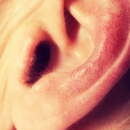
10% of adults in the US have drug use disorder at some point in their lives. While getting sober is certainly one of the most difficult things to do, their journey isn’t over just yet.
Staying sober is a lifelong thing. Some people might be able to stay sober for the rest of their lives, but for others, they might relapse.
So why do people relapse? We’ll answer this question, plus give you some important tips on dealing with withdrawal.
Why Do People Relapse?
Naturally, people in recovery want to stay sober for the rest of their lives if they could. However, there are some triggers that might cause them to relapse.
Below are some of the common ones.
Stress
A huge trigger for relapse is stress. Drugs and alcohol are often used as an escape from real life, so when a stressful event comes up, it can drive someone to crave and use substances.
A Bad Environment
For the best chance at sobriety, you need to surround yourself with sober people and good environments.
If you’re still hanging out with people from your old crowd, you may be placing yourself in tempting situations. Not only that, but your peers might pressure you into breaking sobriety with them.
Withdrawal Symptoms
If you’re only newly sober, then you might be dealing with symptoms of withdrawal. These can be highly unpleasant, which is why many recovering addicts relapse.
They don’t necessarily want to get high. Instead, they just want the withdrawal symptoms to go away so they can function normally.
How to Deal With Withdrawal
When you have withdrawal symptoms, they can be terrible to deal with. For example, you might start sweating, feel nauseous, have an increased heart rate, and have feelings of anxiety.
To deal with withdrawal, do not take the substance to try and ease the symptoms. This will just result in an endless cycle.
Instead, consider attending a medical detox program. These professionals can help you see out complete detox without risk and with comfort.
If your drug withdrawal symptoms aren’t that serious and you’d rather go it alone, then try to live a healthier lifestyle. Eat nutritious meals, exercise, and get plenty of sleep.
In addition, make sure you stay hydrated and practice mindfulness. It can be beneficial to pick up things like yoga and meditation, and to attend cognitive behavioral therapy (CBT) sessions.
Speak to a trusted love one about your struggles so stress is less of a trigger for relapse. If you don’t have anyone you trust, then consider joining a support group.
Don’t Be Ashamed of Relapse
Now you know the answer to the question: why do people relapse?
Whether you’re the one struggling with addiction, or your loved one is, relapse shouldn’t be something to be ashamed of. Remember that it’s human to make mistakes, and that so long as you keep striving in recovery, then that’s all that really matters in the end.
Did you find this article on relapse and withdrawal informative? Then make sure you check out the rest of our blog!

























